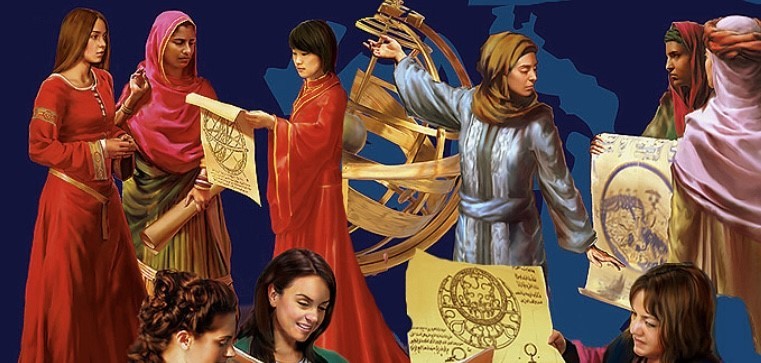
By Malaika
Education. It’s something that provides stability in life and allows you to open new doors for yourself. With it being the beginning of the academic year when many go back to school, college or university, it is important to remember how fortunate we are to access education. Why is it that so many Muslim women are denied access to it, when it is encouraged in our religion for Muslim women to be educated? Here is some history about Muslim women and education!
The first ever university was opened by Fatima al- Fihri, a Tunisian Muslim woman. She opened the University of al- Qarawiyyin in Fez, Morocco over a thousand years ago. After the death of her father, Fatima inherited a large sum of money which she invested in this educational institution in the year 859. Her institution led to the education of many great scholars including Ibn Khaldun, the founder of sociology. This university is considered significant due to it being the gateway for education for those who may not have had access to it otherwise. However, it is also extremely important because it is a symbol of the achievements of an educated, hard- working Muslim woman, at a time where this was almost impossible.
Khadija bint Khuwaylid (the first wife of Prophet Muhammad (PBUH)) was an educated woman who also built a prosperous career for herself. She was a merchant who was so successful that her business equalled that of all the other merchants of Quraysh put together, who were mostly men. In fact, in Islam both women and men alike are encouraged to seek knowledge and those who refuse to be educated are condemned. The first ever revelation of the Quran stressed the importance of being educated: “Read… Read in the name of thy lord…who taught by the pen, taught the human being what he did not know.” (96:1-5)
At no point did he make any reference to gender, he said that it was obligatory upon EVERY Muslim regardless of gender.
Furthermore, throughout his life, the Prophet Muhammad (PBUH) would stress the importance of education to his people. In a Hadith, he said “The seeking of knowledge is obligatory for every Muslim.” (Al- Tirmidhi, Hadith 74). At no point did he make any reference to gender, he said that it was obligatory upon EVERY Muslim regardless of gender. The Prophet Muhammad (PBUH) would also act upon his teachings during times of difficulty. During the battle of Badr, 70 non- Muslims were arrested. The Prophet Muhammad (PBUH) said, “Those who were literate among the prisoners could go free if they taught basic literacy skills to 10 Muslim children.” This emphasises the importance of education as it could act as a basis upon which one could protect themselves, and to lead a respectable future.
With all of this, it seems clear that education is not denied, frowned upon or discouraged in Islam. So, why are so many Muslim women denied this basic right? Well, family laws in Muslim majority countries can play a huge role in a woman’s pursuit of higher education. Fatima Z. Rahman of Lake Forest College found that when a country’s family laws closely follow a strict version of Shariah Law, the number of Muslim women in higher education decreases. However, this is not the case when family laws are based more upon general Islamic laws and rules.
Despite 1400 years passing since the Prophet Muhammad’s (PBUH)death, it is unfortunate to see the state of Muslim communities across the world, and how the Prophet’s teachings have been warped to suit the ideologies of a minority of Muslims. If countries were to adopt an accurate Shariah Law approach to governing, there would be a surplus of Muslim women attending higher education facilities. Sadly, this is not the case.
So how can we help create awareness for Muslim female education rights?
You can spread awareness to those around you. This could be by talking about the gender gap in education to your family and friends or raising awareness/ hosting events at your local mosque. It could also help to donate or raise money for charities that support the education of Muslim women across the globe in less fortunate communities such as NISA Global Foundation. They are a great and reliable charity that focus on empowering women through education – they aim to “enable women and girls to change their world.”
In recent years, there has been an improvement in the number of Muslim women in education. Although Muslims are most likely be uneducated, there has been an increase in the number of female Muslims in education and more Muslim women getting degrees, however at a slower rate that also doesn’t translate to employment gains. There is still a long way to go for Muslim women and girls across the globe to be given equal access and opportunities to education, hopefully that changes in the future.
Join Our Movement
Raise your voice and get connected

 2
2